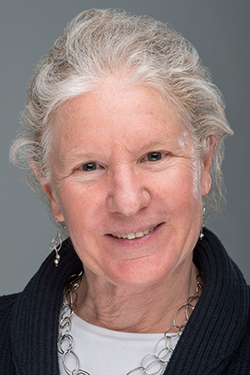Kate Beard-Tisdale
Office: 348B Boardman Hall
Dr. Kate Beard is a professor in the School of Computing and Information Science and a member of the Spatial Computing faculty group at the University of Maine. She is a research faculty member with the Spatial Data Science Institute which is the successor to the National Center for Geographic Information and Analysis (NCGIA) at UMaine for which she was also a research professor since its inception in 1989. She holds a M.S. (1984) and Ph.D. (1988) from the Institute for Environmental Studies, Land Resources Program, where she specialized in geographic information systems.
Education
- PhD, University of Wisconsin-Madison (1988)
- M.S. Geographic Information Systems, University of Wisconsin (1984)
- B.S Landscape Architecture, Iowa State University
Research and Scholarship Interests
Dr. Kate Beard has been conducting research in GIScience research for over 25 years. Her research has covered a range of topics in GIScience including map generalization, data quality and the visualization of spatial data quality, geographic information retrieval, analysis and visualization of spatio-temporal phenomena, and spatio-temporal information integration. Dr. Beard’s current research interests include modeling, analysis and visualization of spatio-temporal phenomena. She has directed and participated in many large interdisciplinary research projects. She was project director for an NSF IGERT–an interdisciplinary PhD training program in Sensor Science, Engineering and Informatics, a collaborative partnership with the Laboratory for Surface Science and Technology (LASST). She has worked closely with marine scientists and oceanographers on analysis and management of ocean observing data collected over the last decade. She served as a Senior Researcher on the Cyberinformatics Committee for the University of Maine EPSCoR Sustainability Science Initiative, a Senior Researcher on an NSF EPSCoR collaborative project with the University of New Hampshire on Advancing Sustainability Science and Knowledge-action Capacities in Coupled Coastal Systems and a Senior Researcher on the NSF EPSCoR SEANET project which investigates the social and ecological carrying capacity to advance aquaculture in Maine. She is the lead for the current campus Data Science and Engineering emerging research initiative.

